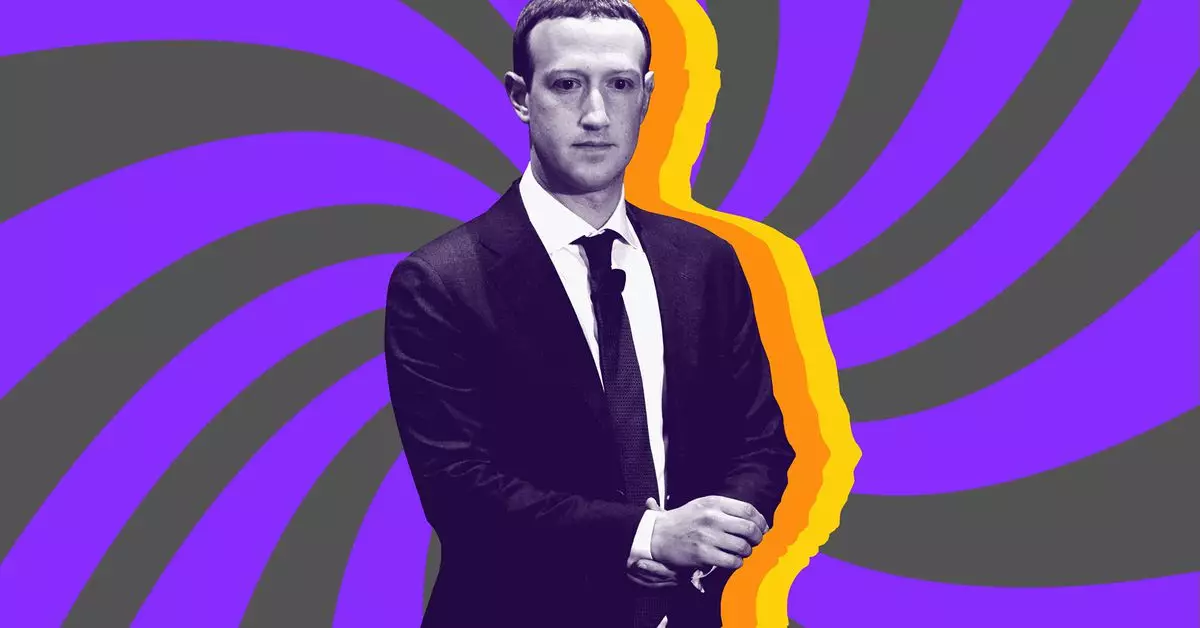In today’s rapidly evolving technology landscape, rivalries among major companies frequently reshape the industry. A recent multi-faceted conversation between Meta CEO Mark Zuckerberg and podcast host Joe Rogan provided some revealing insights into the competitive tensions between two giants: Meta and Apple. With Zuckerberg signaling dissatisfaction with Apple’s current innovation trajectory and its restrictive practices, this dialogue unveils the complexities of modern tech competition, where issues related to innovation, monopolistic behavior, and user freedom reign supreme.
Zuckerberg’s critique of Apple centers around his belief that the company, once heralded as a trailblazer under the stewardship of Steve Jobs, has stagnated. He pointed to the iPhone—applauded as a revolutionary product—asserting that Apple’s success has largely relied on it rather than introducing significant innovations in recent years. According to Zuckerberg, “Apple hasn’t really invented anything great in a while,” implying that the iPhone’s legacy should not exempt Apple from scrutiny regarding its current trajectory. This argument raises an essential question: can a company rest on its laurels indefinitely, or must it continually innovate to stay relevant in a dynamic industry?
In light of fast-paced technological advancements, companies that fail to innovate risk losing ground to more agile competitors. Zuckerberg’s observations suggest that if Apple continues down this path, newcomers with fresh ideas and disruptive technologies could potentially exploit its vulnerability.
Central to the dialogue was the contentious issue of Apple’s App Store policies, particularly its hefty 30 percent fee on transactions. Rogan, in his shift from Apple to Android, highlighted this aspect as a significant deterrent. Zuckerberg echoed this sentiment, questioning the fairness of Apple’s “random rules,” which he claims hinder competition and innovation. He stated, “Apple has thoroughly hamstrung the ability for anyone else to build something that can connect to the iPhone in the same way as Apple’s own products.” This highlights the frustration that many developers feel over the current operational constraints imposed by Apple, which can stifle creativity and limit the development of competitive products.
Zuckerberg’s emphasis on the potential for better alternatives—such as AirPods—should Apple open its protocols hints at a broader conversation about the benefits of inclusivity in technological ecosystems. If platforms like Apple’s were more conducive to outside collaboration, the tech industry could witness an explosion of creativity and innovation.
The discussion about Apple’s practices is occurring against a backdrop of increasing regulatory scrutiny. In the European Union, new legislation is directly challenging the business models of major tech companies, aiming for a more equitable digital marketplace. The U.S. Department of Justice has also raised concerns about monopolistic behavior, launching investigations into tech companies like Apple. As these regulatory pressures mount, companies like Apple may find themselves compelled to adapt their business models to foster more innovation and competition within their ecosystems.
Zuckerberg’s assertion that “Apple is ultimately hurting itself” by prioritizing its interests over competitive innovation reflects a significant concern in the tech industry. The notion that a company can become complacent and ignore the rapid evolution of user expectations and technology trends serves as a cautionary tale for all.
Beyond the rivalry with Apple, Zuckerberg’s conversation encompassed broader technological paradigms, including advanced neural interfaces and augmented reality. He envisions a world where physical and digital realities seamlessly blend, suggesting transformative possibilities for how we’ll interact with technology. The idea of intertwining digital interfaces with everyday life hints at significant changes in how social interactions, communication, and even user experiences will evolve.
This forward-thinking perspective not only aligns with Meta’s strategic interests but also reveals an optimism about the future of human-computer interaction. If technological innovation can be liberated from the constraints of monopolistic practices, we may be on the brink of revolutionary advancements in interface design.
The insightful exchange between Zuckerberg and Rogan exposes critical issues that reverberate throughout the tech industry: the necessity of continual innovation, the impact of monopolistic practices, and the importance of developing fairer ecosystems for app and hardware developers. As the tensions between Meta and Apple continue to unfold, one thing remains clear: organizations must innovate, adapt, and collaborate to navigate the complexities of an ever-evolving digital world. The landscape might be competitive, but the potential for positive change is also substantial, driven by a collective push towards fairer practices and groundbreaking technology.

